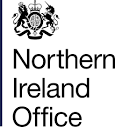HISTORIC PRESS RELEASE : Enterprise to be theme of Pre Budget Report says Chancellor, as new figures on Business Start Ups are released [November 2002]
The press release issued by HM Treasury on 5 November 2002.
Figures issued by Chancellor Gordon Brown today show small business creation rates varying widely across the UK – both within and between regions of the country.
They show 175,455 new businesses (measured by VAT registrations) started up across the UK in 2001, equivalent to 37 businesses for every 10,000 adults. The rates ranged from 20 new vat registrations per 10,000 citizens in the North East to 44 per 10,000 citizens in the South East.
Start-up rates varied widely in districts right across the country. They were as high as 118 per 10,000 citizens in Camden in London and 65 in Sefton in the North West compared to 19 in Plymouth in the South West or 10 in Barrow-in-Furness.
And they differed significantly within regions as well, ranging from 33 businesses per 10,000 population in Teesdale to 10 in Wansbeck in the North East, and from 76 in Tunbridge Wells to 20 in Gosport in the South East, for example.
Start-ups per 10,000 population in the 20 most disadvantaged areas of England (outside London) are only half of start-ups in the 20 most affluent areas, and if the level of business in every region was at least as high as the national average, there would be 110,000 more businesses across the UK.
Speaking at the Inner City 100 Awards event for the fastest growing businesses in Britain’s most deprived inner cities, Chancellor Gordon Brown signalled new measures in the forthcoming Pre Budget Report to help tackle the challenges that businesses face, especially in disadvantaged areas.
The Chancellor, a patron of Inner City 100, said:
“I want British young people to see businessmen and women once again as role models in their communities. I want teachers willing to extol the virtues of enterprise and a career in commerce. I want our poorest communities to see an expansion of enterprise as the best solution to unemployment and deprivation. And I want an end to no-go areas for the enterprise economy in any part of Britain. Today’s figures show new businesses were established in every district and in every region of our country, but that the rates at which they were set up varies dramatically both within regions and between them.
“And they show the potential for each region, not just for the number of new businesses we can create, but for additional jobs as well. If the level of business in every region were the same as the national average, there would be 110,000 more businesses generating wealth and prosperity and creating jobs across the UK.
“That is why enterprise will be a central theme of our Pre Budget Report, with special incentives for enterprise in the poorest areas. We have already helped firms by cutting the cost of cleaning up contaminated land and will abolish stamp duty on commercial property transactions. Many of these areas will also be able to sweep aside business planning red tape.
“And as we promote the enterprise agenda in Britain, so we must do the same in Europe – this involves the opening up of financial services, utilities, energy telecommunications and the air transport industry. Our demand, that we abolish stamp duty entirely for commercial property purchases in depressed areas, is a test case for Europe’s willingness to reform.”



